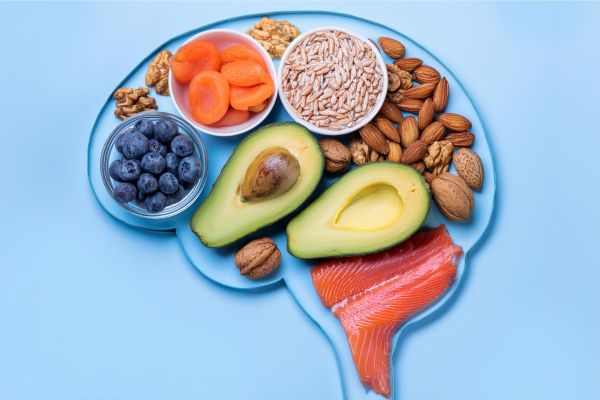The idea that our gut might influence our mental wellbeing once sounded like fringe science. But not anymore. Over the past decade, researchers have increasingly confirmed that what happens in your digestive system doesn’t stay there. It can influence how you think, feel, and even how you respond to stress. This connection, known as the gut-brain axis, is reshaping how we understand mental health—and probiotics and prebiotics are emerging as key players in that conversation.

What Is the Gut-Brain Axis?
The gut-brain axis refers to the two-way communication network between your gastrointestinal tract and your brain. This intricate system involves multiple pathways, including the vagus nerve, which directly connects the gut to the brain, and the enteric nervous system, often called the “second brain” due to its complexity.
The microbiome—the trillions of bacteria, fungi, and other microbes that reside in the gut—produces neurotransmitters like serotonin, dopamine, and GABA. Remarkably, about 90% of the body’s serotonin is produced in the gut. These chemicals affect everything from mood to sleep and cognition, which helps explain why gut health plays such a significant role in mental wellness.
How Gut Health Influences Mental Wellbeing
When the gut microbiome is imbalanced—due to poor diet, antibiotics, stress, or illness—it can trigger chronic inflammation and alter neurotransmitter production. This imbalance, or dysbiosis, has been linked to an increased risk of conditions like anxiety, depression, and even Alzheimer’s disease.
Studies have shown that people with mood disorders often have reduced microbial diversity in their gut. Chronic stress can also disrupt the gut barrier, allowing harmful substances to enter the bloodstream, which then trigger inflammation in the brain—another potential contributor to poor mental health.
The Role of Probiotics in Mental Health
Probiotics are live bacteria that provide health benefits when consumed in adequate amounts. They help restore microbial balance, strengthen the gut lining, and support the production of mood-related neurotransmitters.
A 2022 meta-analysis published in Frontiers in Psychiatry found that probiotic supplementation significantly reduced symptoms of depression and anxiety in several randomized controlled trials. Another study in Nutrients journal reported that daily intake of Lactobacillus and Bifidobacterium strains helped participants experience less stress and better cognitive performance under pressure.
Fermented foods like yogurt, kefir, kimchi, and sauerkraut are natural sources of probiotics, making them easy to incorporate into daily diets.

How Prebiotics Complement the Effect of Probiotics
While probiotics introduce good bacteria into the gut, prebiotics serve as the food that helps these bacteria thrive. These are typically non-digestible fibers found in foods such as onions, garlic, bananas, leeks, and asparagus.
According to research published in Psychopharmacology, prebiotic supplementation led to lower levels of cortisol, the body’s primary stress hormone, and improved emotional processing. This suggests that prebiotics can help regulate mood and stress by enhancing the activity of beneficial gut microbes.
Prebiotics also promote the production of short-chain fatty acids (SCFAs), which have anti-inflammatory effects and are believed to protect against neurodegenerative diseases.
Scientific Evidence Supporting the Gut-Brain Connection
The evidence behind the gut-brain link is growing rapidly. For instance:
- A 2021 systematic review published in General Psychiatry concluded that both probiotics and prebiotics had a positive impact on mood, stress, and cognition, especially when taken for more than four weeks.
- The American Psychological Association (APA) noted that psychobiotics—a class of probiotics that impact mental health—could be a promising adjunct to traditional psychiatric care.
- A 2019 study in Nature Microbiology found that people with depression had significantly lower levels of specific gut bacteria, further linking microbiome diversity to mental wellbeing.
These findings reinforce the idea that mental health interventions shouldn’t just be limited to the brain—they should consider the gut as well.

Tips for Supporting Mental Health Through Gut-Friendly Nutrition
Improving your gut health doesn’t require drastic measures. Small, consistent changes in diet and lifestyle can make a big difference:
- Add more fermented foods like miso, kefir, and kombucha to your meals.
- Increase your intake of prebiotic-rich foods such as oats, apples, and artichokes.
- Limit processed foods and sugar, which can fuel the growth of harmful bacteria.
- Stay physically active, as exercise boosts gut microbe diversity.
- Get enough sleep, since sleep deprivation can disrupt microbial balance.
- Avoid unnecessary antibiotics, which can wipe out both bad and good gut bacteria.
By adopting these habits, you’re not only supporting your gut—you’re taking a proactive step toward better emotional resilience and cognitive clarity.
Gut-Brain Axis Shows Interconnection
The gut-brain axis is a remarkable system that shows how interconnected our bodies truly are. With a growing body of scientific evidence, it’s clear that probiotics and prebiotics can significantly influence mental health by supporting a healthier gut environment. As we continue to explore these connections, one thing becomes increasingly clear: taking care of your gut isn’t just good for your stomach—it’s essential for your mind.




